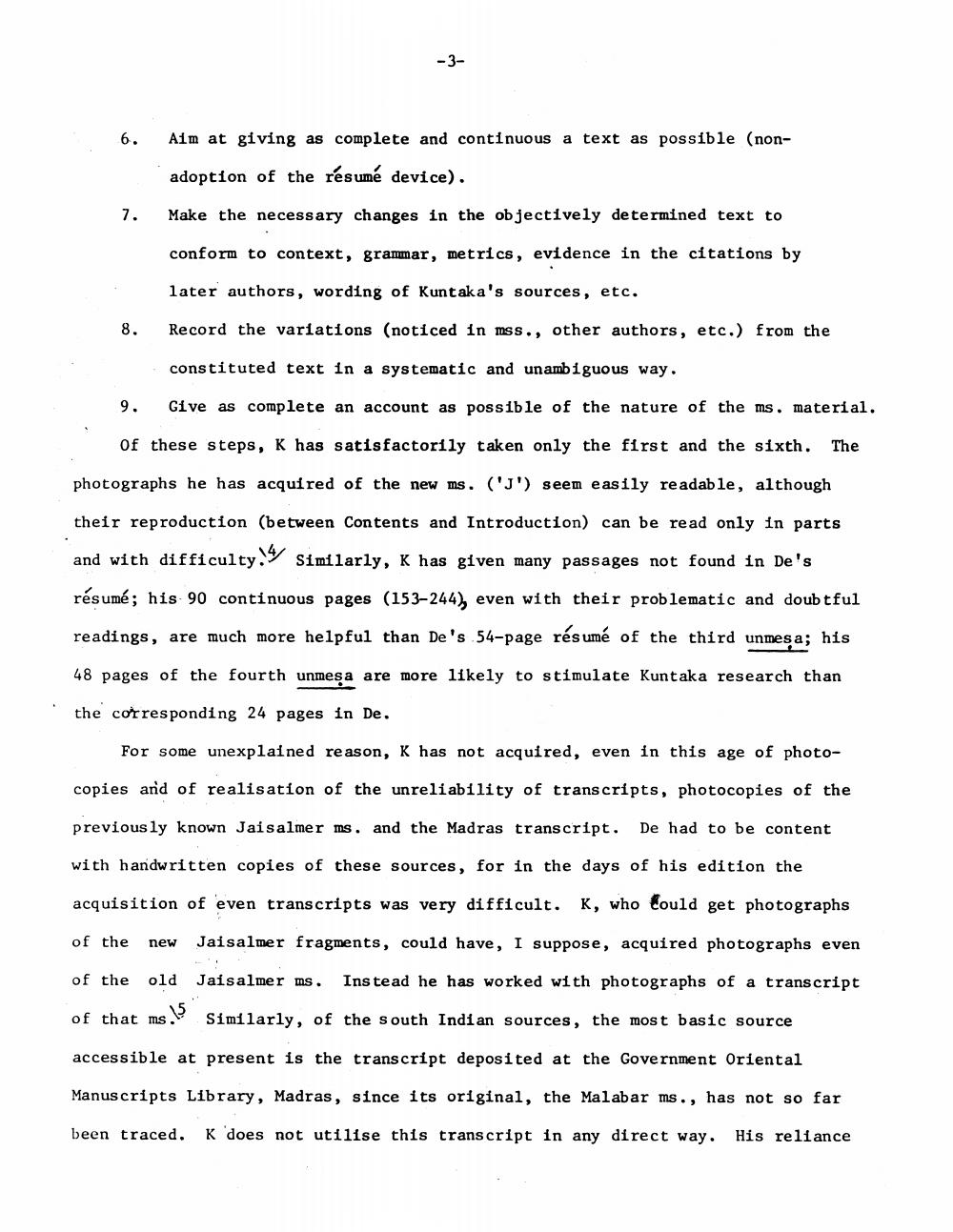________________
- 3
6.
Aim at giving as complete and continuous a text as possible (non
A
adoption of the résumé device).
7.
Make the necessary changes in the objectively determined text to
conform to context, grammar, metrics, evidence in the citations by
later authors, wording of Kuntaka's sources, etc.
Record the variations (noticed in mss., other authors, etc.) from the
constituted text in a systematic and unambiguous way.
9.
Give as complete an account as possible of the nature of the ms. material.
Of these steps, K has satisfactorily taken only the first and the sixth. The
photographs he has acquired of the new ms. ('J') seem easily readable, although
their reproduction (between Contents and Introduction) can be read only in parts
and with difficulty.
Similarly, K has given many passages not found in De's
résumé; his 90 continuous pages (153–244), even with their problematic and doubtful readings, are much more helpful than De's 54-page résumé of the third unmeşa; his 48 pages of the fourth unmesa are more likely to stimulate Kuntaka research than the corresponding 24 pages in De.
For some unexplained reason, K has not acquired, even in this age of photo
copies and of realisation of the unreliability of transcripts, photocopies of the
previously known Jaisalmer ms, and the Madras transcript. De had to be content
with handwritten copies of these sources, for in the days of his edition the
acquisition of even transcripts was very difficult. K, who could get photographs
of the new
Jaisalmer fragments, could have, I suppose, acquired photographs even
of the old Jaisalmer ms.
Instead he has worked with photographs of a transcript
of that ms.
Similarly, of the south Indian sources, the most basic source
accessible at present is the transcript deposited at the Government Oriental
Manuscripts Library, Madras, since its original, the Malabar ms., has not so far
been traced. K does not utilise this transcript in any direct way. His reliance




